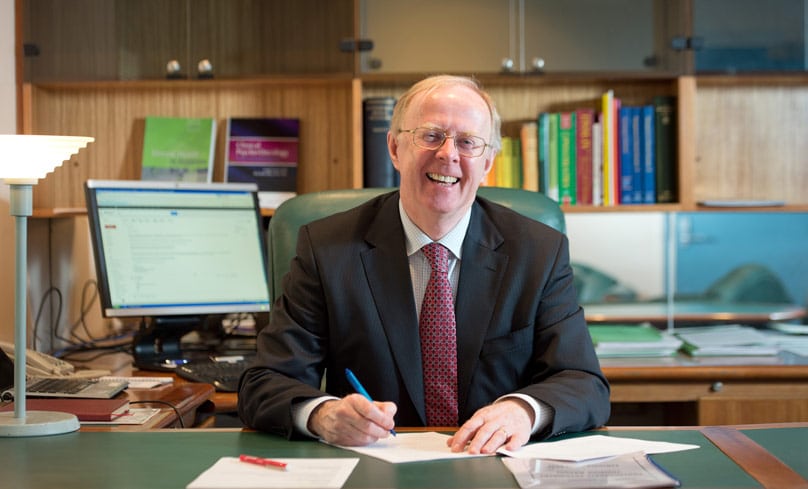
A top palliative care expert has issued a call for Sydney parishioners to dramatically improve the quality of life for terminally ill people by training to be a palliative care volunteer.
Professor David Kissane dreams of an army of volunteers trained to provide a range of additional supports for the dying or those with a life-limiting illness. He supports a new initiative of Archbishop Anthony Fisher OP to encourage parishes to become communities of care for the sick and dying as the state faces a new assisted dying bill.
Professor Kissane, Chair of Palliative Medicine Research at The University of Notre Dame, and the Cunningham Centre for Palliative Care Research, says there is a particular need due to the way palliative care funding is distributed in New South Wales, and this needs to be improved, with earlier access to a range of services in people’s own homes.
The goal for optimal care is early referral and “whole person and family-centred care” of the ill person, and volunteers can do much to provide valuable support that cannot always be met by the medical or nursing staff that enter a person’s home, Professor Kissane said.
Speaking at the recent online launch of the Living Well, Dying Well project Professor Kissane said one of its goals is to improve palliative care in the community setting by growing the number of volunteers working through parishes in connection with local palliative care services.
“There are many ways that volunteers can contribute and they will be trained to deliver this care safely,” he said. “To visit the sick and provide respite, to help with transport, to work with the person to write a biography that celebrates their life, or to be a photographer to help provide further memories, to take Communion to the sick, help provide bereavement or administrative support and many other things.
“Stories of difficult deaths spread fear of palliative care in our communities, and euthanasia is seen as so much easier. If we volunteer for palliative care, we make death less frightening, we care for one another, we make our parishes compassionate communities, then perhaps we [will realise we] don’t need voluntary-assisted dying.”
Paige Bullen, Project Manager, Chaplaincy in the Community at CatholicCare Sydney, said it was difficult for many people to express fears and concerns with those closest to them, and this is one area where trained volunteers could help by listening without judgement to an ill person or their carer who may not otherwise have anyone among their family or friends or community who are able to do so.
Volunteering in palliative care is both a privilege and challenge, she said.
In a video message, Archbishop Anthony Fisher OP expressed his hope that although Catholics today do not live in the same tight-knit communities of the earliest Christians, our parishes will become “communities of care” for the sick, dying and grieving through Living Well, Dying Well.
The initiative draws upon the expertise of agencies including Catholic Healthcare, St Vincent’s Health Australia, Catholic Cemeteries & Crematoria, CatholicCare Sydney, CatholicCare Broken Bay, and the University of Notre Dame, Australia.
Patrick O’Reilly, general manager of CatholicCare Sydney’s pastoral services division, said that both people who are interested in becoming volunteers and those seeking accompaniment from volunteers, can register their interest at www.livingwelldyingwell.org
Volunteer training is planned to begin in November, initially online.
Related:
